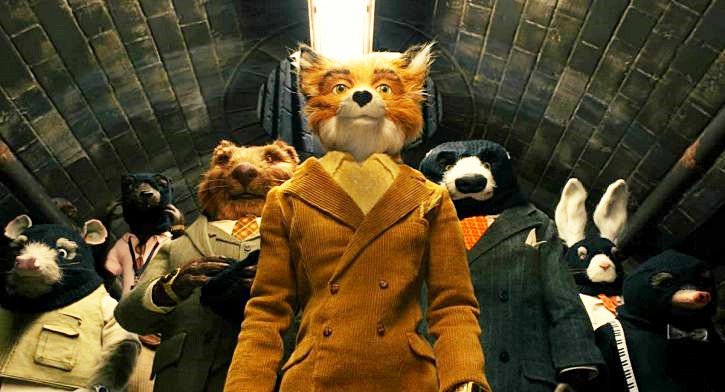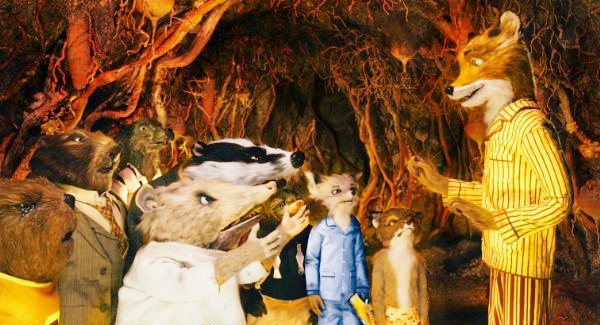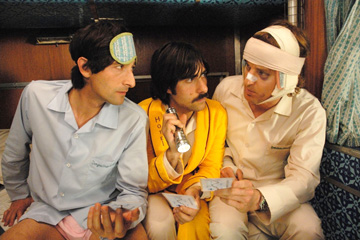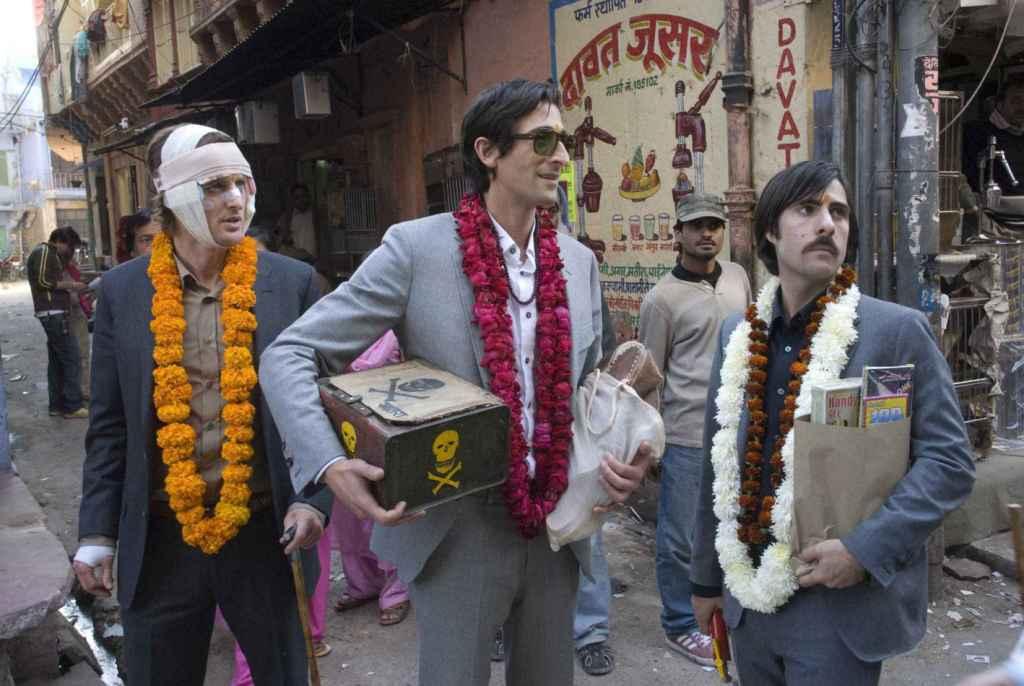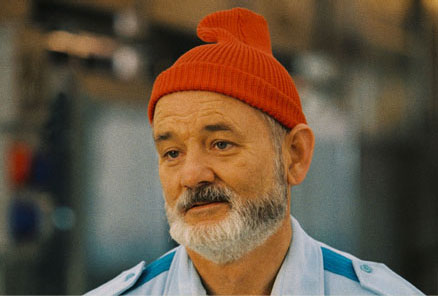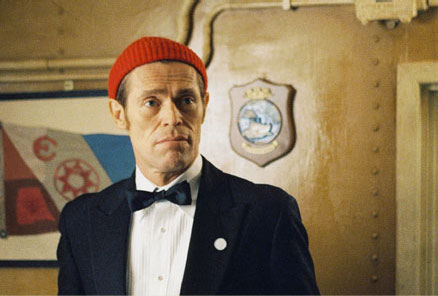Happy New Year, everyone. Inauspiciously for 2005, it looks like I’m starting the year a day late on the end-of-2004 movie roundup…but better late than never. As you probably already guessed, this year’s film list will be the first in four years without a Peter Jackson Tolkien adaptation in the #1 spot (although I’m still keeping it warm for The Hobbit in 2008.) Nevertheless, my top choice this year was an easy one, and those of y’all who come ’round here often can probably figure it out.
Top 20 Films of 2004:
[2000/2001/2002/2003]
1) Eternal Sunshine of the Spotless Mind. The one true classic of 2004, Eternal Sunshine has only grown in my estimation since its initial release in March. (David Edelstein’s take on it as one of Harvard philosopher Stanley Cavell‘s remarriage comedies is well worth reading.) A heartfelt examination of love, loss, and memory, Eternal Sunshine was also a strikingly adult take on romance and relationships, the kind you usually don’t get from Hollywood. With great performances from a caged Jim Carrey and an electric Kate Winslet, the film managed to be both an earnest, passionate love story and a wistful paean to those person-shaped holes we all carry in our hearts and memories. Along with Annie Hall and High Fidelity, it goes down as one of my all-time favorite films about the mysteries of love. (Why even bother? We need the eggs.)
2) Garden State. Writer-director Zach Braff’s “anti-Graduate” debut was a small but touching ode to home that, along with reviving Natalie Portman as an actress and offering the best soundtrack of the year, delivered exactly what it promised. A bit hokey at times, sure, but Garden State wore its heart on its sleeve and, for the most part, got away with it. It was a witty and eloquent voyage to the Jersey burbs and a testament to the proposition that as Paul Weller put it, it’s never too late to make a brand new start.
3) The Incredibles. Pixar has been delivering well-constructed eye-popping wonders since Toy Story, and The Incredibles is the best of the lot. I figured it might be awhile before a movie topped Spiderman 2 as a sheer comic book spectacle, but, as it turned out, The Incredibles did it only a few months later. One of the best comic book films ever made, The Incredibles was two hours of unmitigated fanboy fun. I’m going to go out on a limb and say it’s probably also the best Fantastic Four film we’re ever going to see.
4) Sideways. Like a fine 1961 Cheval Blanc, Alexander Payne’s elegiac toast to California wine country and the regrets and indignities of middle-age has a tendency to linger in the senses. Paul Giamatti must tire of playing depressive, barely sociable losers, but he’s great at it here…Sideways isn’t as funny as Election, but it is a memorable trip.
5) Spiderman 2. A definite improvement on the first adventure of your friendly neighborhood wallcraller, Spiderman 2 was a perfectly made summer film that stayed true to the spirit of Peter Parker. Along with X2, this is the gold standard for comic book-to-film adaptations right now…let’s hope Batman Begins is up to snuff.
6) Shaun of the Dead. Although it lost its footing shambling to its conclusion, Shaun of the Dead was great fun for the first two-thirds of its run, and it’s now probably my favorite zombie movie (everyone should have one.) A much-needed dry British humor fix to tide us over until Hitchhiker’s Guide.
7) The Aviator. A bit on the long side, Scorsese’s life of Howard Hughes is most fun when it stays away from the airfields and lounges about Old Hollywood. Two very clean thumbs up.
8) The Assassination of Richard Nixon. A dark, unflinching 90-minute descent into violent futility. I originally had this before The Aviator, then figured the degree of difficulty on Scorsese’s flick was much, much higher. Nevertheless, this funereal biopic for non-billionaire crazies, while grim and not much fun, was well-made and well-performed, and I expect it’ll stay with me for awhile.
9) The Bourne Supremacy. Perhaps a bit too much like its predecessor, Bourne II was still a better Bond than anything we’ve seen in the past 20 years. Paul Greengrass’ shakicam work here bodes well for Rorshach in The Watchmen.
10) Harry Potter and the Prisoner of Azkhaban. It’d be hard to make a better film of Harry Potter’s adventures at Hogwarts than Alfonso Cuaron did here — Azkhaban managed to capture the dry wit and subversive spirit of the books that’s so missing in the Chris Columbus movies. That being said, Azkaban also made it clear that much of the fun of Rowling’s tomes is uncapturable on film. What was great fun to read on the page ended up seeming like Back to the Future II on the screen. With that in mind, Year 6 begins on 7/16.
11) Ocean’s 12. Two swollen hours of Soderberghian glamour and inside baseball. Not everyone’s cup of tea, I know, but I found it an agreeable improvement on Ocean’s 11. (Don Cheadle’s accent is still terrible, tho’.)
12) Touching the Void. Snap! Aigh! Crunch! Aigh! It’d be hard to forget anything as memorable as Shattered Femur Theater. Well worth seeing, if you can stand the pain.
13) Fahrenheit 9/11. Hmmm…perhaps this should be higher. I definitely left the theater in an angry froth (not that it takes much)…unfortunately, apparently so did all the freepers.
14) My Architect. An excellent documentary on Louis Kahn, brilliant architect and terrible family man. Alas, it’s also a less-excellent documentary on Kahn’s son, and his Oprah-like quest for self-acceptance.
15) Kinsey. Take that, red staters.
16) Hero. A memorable meditation on love, power, and kick-ass kung-fu, until its train-wreck derailing in the last half-hour.
17) The Life Aquatic with Steve Zissou. As I said yesterday, Aquatic was a jaunty Wes Anderson joyride that nevertheless gets a little lost in its terminal cuteness. When you care more about the leaving-behind of Cody the three-legged dog than you do the death of a major character, there’s a problem.
18) I Heart Huckabees. Huckabees had its heart in the right place, and made for a decently appealing night at the movies…but it also had a terminal-cute problem.
19) Collateral. If the movie had maintained the promise of its first hour throughout, Michael Mann’s Collateral would have been a top ten contender. Alas, it all falls apart once Tom Cruise goes bugnut psycho in da club.
20) Kill Bill, Vol. 2. There was probably one really good movie somewhere in the two Kill Bills. The second half was closer to it than the first.
Not Seen: Bad Education, Before Sunset, Finding Neverland, Friday Night Lights, Harold and Kumar, Hotel Rwanda, Maria Full of Grace, Million Dollar Baby, Ray, Spanglish
Worst Movies of the Year: Van Helsing, Sky Captain and the World of Tomorrow, The Chronicles of Riddick, The Village, Code 46, Closer, Alexander, 21 Grams (2003)
Biggest Disappointment: The Ladykillers
Ho-Hum: Team America: World Police, The Alamo, House of Flying Daggers, Troy, King Arthur, Anchorman, Blade: Trinity, Shrek 2
Worth a Rental: Mean Girls, The Manchurian Candidate,
Hellboy, The Machinist, City of God (2003)
Best Actor: Jim Carrey, Eternal Sunshine; Paul Giamatti, Sideways; Sean Penn, The Assassination of Richard Nixon.
Best Actress: Kate Winslet, Eternal Sunshine.
Best Supporting Actor: Thomas Haden Church, Sideways
Best Supporting Actress: Cate Blanchett, The Aviator; Virginia Madsen, Sideways.
2005: On paper, it’s looking like a better year for film, fanboy and otherwise, than 2004. The slate includes Star Wars Episode III, Batman Begins, The Chronicles of Narnia, All the King’s Men, PJ’s King Kong, Burton’s Charlie and the Chocolate Factory, Spielberg’s War of the Worlds, Gilliam’s The Brothers Grimm, Polanski’s Oliver Twist, Malick’s The New World, Harry Potter and the Goblet of Fire, Constantine, Sin City, Fantastic Four, and my own most-anticipated project, Hitchhiker’s Guide to the Galaxy. So here’s to the new year!
